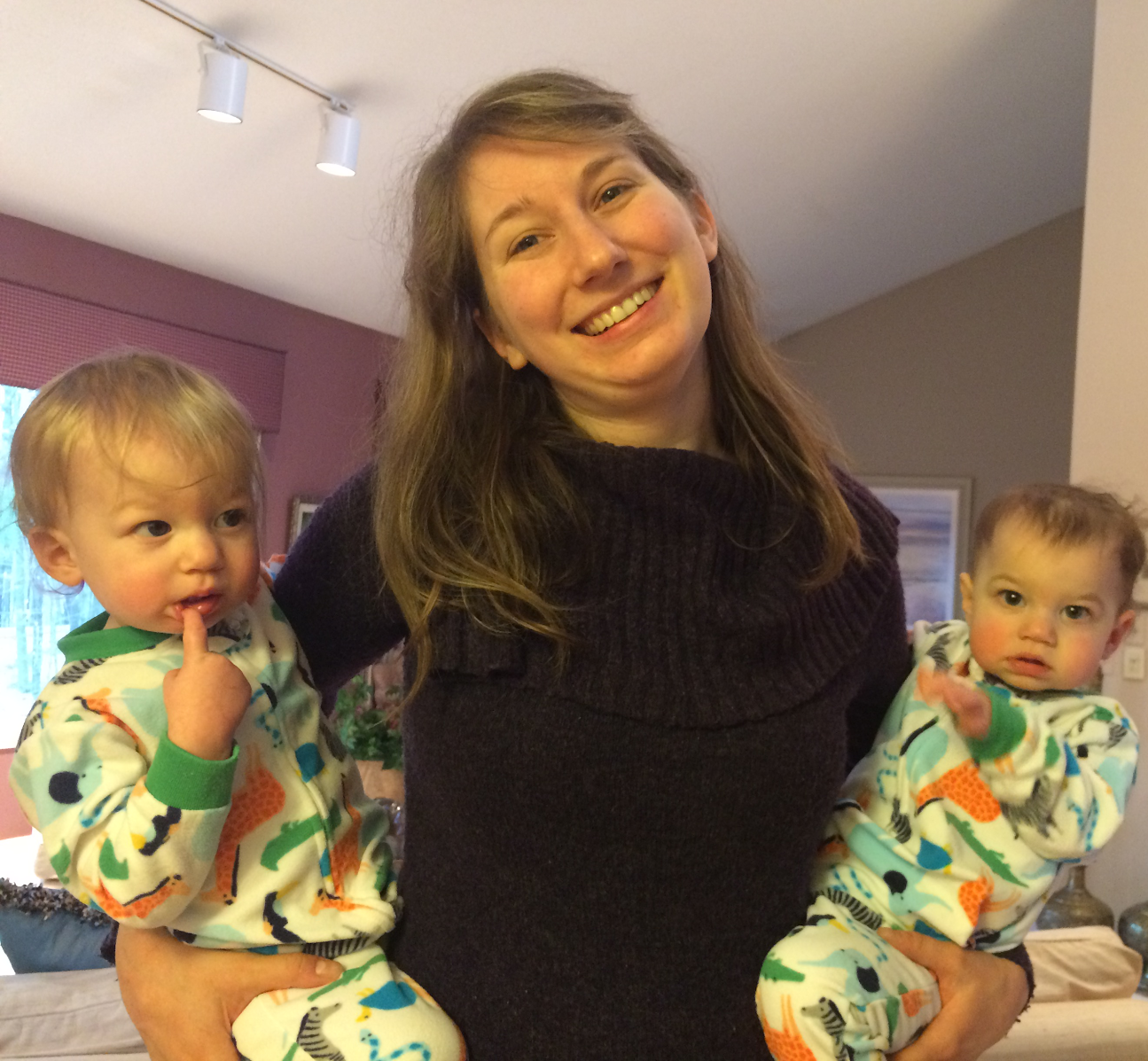This week, we are learning about neurodiversity in our community. We got to chat with Rebecca, a nurse, mother, and Friend in the Fight, about her experience as an adult with ADHD.
Tell us a little about your journey!
Open-ended questions like this are hard for me…
As a kid I was energetic, loud, interested in everything and loved learning, felt everything deeply, bright and high-achieving in school, socially “weird” (according to others) but had close friendships when I found people I could be myself around. In eighth grade my friends and I were targeted by a group of bullies, and as a result I made a conscious decision to learn how to fit in with my peers. Over the years I got so adept at masking that I lost my sense of self, and now in my thirties I’m trying hard to rediscover my true, authentic self.
As an adult I found life surprisingly difficult. Managing my own time and priorities, keeping a house clean, establishing consistent routines, etc. were extremely challenging for me. I discovered TV and with it my inability to stop after one (or two or three) episodes. I didn’t understand why these “basic” life skills eluded me. I was used to getting good grades and succeeding in general, so this really shook my confidence. When I was diagnosed with ADHD at 29 and learned about executive dysfunction, I felt very validated — that I wasn’t just lazy, those invisible struggles were real — and was able to show myself more compassion.
What does neurodiversity mean to you?
I hate the stigma that goes along with neurodivergent “disorders” like ADHD and autism. Certain aspects of it are very challenging – such as executive dysfunction andsensory sensitivities – but there is so much more to it, and being slapped with a label that has so much stigma attached can lead to self-esteem issues as well as discrimination by employers. On the other hand, finally getting a diagnosis that explains your life struggles can be powerfully healing.
I’ve always been someone who values diversity in general. I see our world as a beautiful mosaic of so many different people, cultures, customs, interests — and I LOVE learning about people different from myself. To me, neurodiversity is just one more facet of diversity. Just as our world would be empty if everyone looked the same, spoke the same, ate the same food, I believe our world would be so much less colorful if all brains were wired the same. The people I have known on the neurodivergent spectrum are such interesting, exciting people with so many different niche interests and unorthodox ideas to share with the world.
What does your neurodiversity look like?
In many ways it’s hard to explain. I just see the world differently than most people – like I’m looking at everything through a different lens.
My sensory processing is definitely very different from others. I have a combination of sensory-seeking and sensory-avoidant tendencies.
I am smart and intuitively make connections that other people don’t.
On the other hand, I often have a hard time navigating social situations or following etiquette that doesn’t make sense to me.
I can “space out” and be lost in my own world of thought for hours without even realizing it.
At times I have trouble directing my attention; at other times I notice things no one else does or I can hyperfocus on something and block everything else out.
I care less than others about how things “should” be done, which allows me the freedom to think outside the box.
What challenges have you faced from being in environments that didn’t work with your brain?
I joined an ADHD coaching and accountability group that gave me many new skills for managing executive dysfunction.
I have worked hard on developing positive coping mechanisms that help me push through sensory overload, such as mindful breathing.
And I am (slowly) learning to accept myself as I am, so that I don’t make those challenges worse by getting overwhelmed with shame.
What strengths have you noticed from your “divergent” brain?
Resilience and empathy
How did Becca’s story resonate with you? How have labels and stigmas impacted your own journey? Let us know in our Friends in the Fight facebook group!

